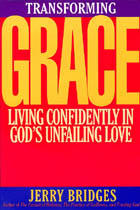Mark Noll on the Bible in Public Life
Mark Noll has written a very enlightening article for Books and Culture on the place of the Bible in American public life. Noll considers four primary ways that Scripture is deployed in public speeches (rhetorical, evocative, political, and theological). His major examples are Abraham Lincoln (especially the second inaugural address, in which Lincoln quoted Ps. 19:9b), and Martin Luther King, Jr. Both these men were able to call upon Scripture to undergird their political arguments. Noll writes:
The orations by King and Lincoln were unusual because they brought a panoply of biblical testimony to bear on circumstances of great public moment at times of evident national crisis. King's dramatic address underscored a turning point in the nation's moral history when, nearly a century after the end of the war to end slavery, the United States was moving haltingly to confront the bitter realities of racial discrimination. For Lincoln, an unexpectedly calm meditation near the conclusion of an unexpectedly violent war became the occasion for profound reflections on the inexorable costs of justice delayed, the counter-intuitive blessings of charity for all, and (supremely) the unfathomable mysteries of divine providence. In both cases, the Bible was indispensable for shaping what the speakers said.But things have changes since King, and it is more difficult now to effectively deploy Biblical language in public pronouncements. As Noll says, "the Bible has shrunk to a smaller place in the American landscape." There are many reasons for this, but it all leads to the following series of dilemmas:
Noll has much more to say then in answer to the question, What is to be done? He brings to bear a rich knowledge of history, surveying a sometimes surprising assortment of historical viewpoints (from French Catholic to Jewish to African American). But I've quoted enough. Noll's meditation on history leads to some interesting conclusions. I highly recommend this engaging work.the more religiously plural the nation becomes, the less it is natural for the citizenry as a whole to grasp the significance of the Bible; the less it is natural for the citizenry as a whole to grasp the significance of the Bible, the more it is likely that the Bible is used to appeal to only some of the citizens; the more it is likely that the Bible is used to appeal to only some of the citizens, the greater the likelihood of partisan and therefore superficial use of the Bible; the greater the likelihood of partisan and therefore superficial use of the Bible, the more the Bible loses its integrity as a public force; the more the Bible loses its integrity as a public force, the more irrelevant it looks in a religiously plural nation; but the more irrelevant or partisan or superficial the Bible becomes in a religiously plural nation, the less likely that leaders can use Scripture for the self-sacrificing, altruistic, or prophetic purposes for which Abraham Lincoln and Martin Luther King, Jr., put the Bible so dramatically to use.



